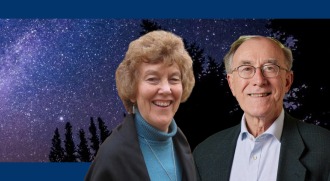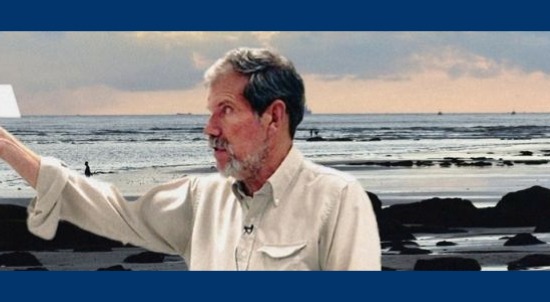
Environmental Data Science
Published: June 2025
Description
The Environmental Data Science Certificate Program is designed to equip learners with the technical skills to interpret and communicate environmental data insights. This program provides essential knowledge and skills related to the types, acquisition, and visualization of data to tackle complex global environmental challenges.
The curriculum includes lectures, experiential learning opportunities, and a capstone project. Learners also engage in peer discussions and collaboration across environmental disciplines. The popular open-source R language is the primary coding language used in the course, with an introduction to Python.
The inaugural cohort launched on October 2, 2025, and will run through March 25, 2026.
Program Takeaways
- Build a foundation of best practices in obtaining, integrating and managing data for environmental data science. Acquire expertise in data acquisition, ensuring data quality, consistency, and accessibility for analysis using environmental datasets.
- Convert data into meaningful insights and solutions from local to global environmental challenges. Learn the details of data access, data management/maintenance and learn to recognize when advanced analytical methods are necessary.
- Identify and solve data issues to enhance environmental insights. Learn to program and analyze environmental data using exploratory techniques like descriptive stats and regression.
- Communicate your findings through meaningful visualizations to deepen understanding and support decision-making.
Meet the Instructors
 Professor Eli Fenichel’s research approaches natural resource management and sustainability as a portfolio management problem by considering natural resources as a form of capital. Fenichel also has a strong interest in how people respond to risk, especially from infectious diseases, and how those responses shape system dynamics. In his research he has used data from satellites to cell phones and from surveys to market transactions. These projects have contributed to understanding of topics such as forestry, fisheries, groundwater, infectious diseases, biodiversity and conservation, and more. Prof Fenichel has served an Assistant Director at White House Office of Science and Technology Policy (2021-2023), the U.S. Bureau of Economic Analysis’s Advisory Committee, and various committees for the World Bank, Asian Development Bank, United Nations Statistics Division, and World Health Organization.
Full Biography
Professor Eli Fenichel’s research approaches natural resource management and sustainability as a portfolio management problem by considering natural resources as a form of capital. Fenichel also has a strong interest in how people respond to risk, especially from infectious diseases, and how those responses shape system dynamics. In his research he has used data from satellites to cell phones and from surveys to market transactions. These projects have contributed to understanding of topics such as forestry, fisheries, groundwater, infectious diseases, biodiversity and conservation, and more. Prof Fenichel has served an Assistant Director at White House Office of Science and Technology Policy (2021-2023), the U.S. Bureau of Economic Analysis’s Advisory Committee, and various committees for the World Bank, Asian Development Bank, United Nations Statistics Division, and World Health Organization.
Full Biography
 Jennifer Marlon, Ph.D. is a Research Scientist and Lecturer at the Yale School of the Environment and the Yale Program on Climate Change Communication (YPCCC). She obtained her Ph.D. and M.S. in Geography from the University of Oregon. Dr. Marlon uses surveys, experiments, and modeling to understand public perceptions of and responses to rapid environmental changes, particularly relating to climate and extreme weather events. Examples of her recent projects include the Yale Climate Opinion Maps and studies of coastal Connecticut residents’ hurricane attitudes and heat wave risk perceptions.
Dr. Marlon also studies the wildfire and climate change using sediment records. She developed the Global Charcoal Database, now an international collaborative effort, that houses hundreds of sediment records from lakes, soils, and oceans around the world. Her research has traced the shift from climate- to human-driven fire regimes globally and has provided evidence of how wildfires respond to abrupt climate changes in the past. She has published over 70 peer-reviewed papers in journals such as Science, Nature Geoscience, Nature Climate Change, and the Proceedings of the National Academy of Sciences.
Full Biography
Jennifer Marlon, Ph.D. is a Research Scientist and Lecturer at the Yale School of the Environment and the Yale Program on Climate Change Communication (YPCCC). She obtained her Ph.D. and M.S. in Geography from the University of Oregon. Dr. Marlon uses surveys, experiments, and modeling to understand public perceptions of and responses to rapid environmental changes, particularly relating to climate and extreme weather events. Examples of her recent projects include the Yale Climate Opinion Maps and studies of coastal Connecticut residents’ hurricane attitudes and heat wave risk perceptions.
Dr. Marlon also studies the wildfire and climate change using sediment records. She developed the Global Charcoal Database, now an international collaborative effort, that houses hundreds of sediment records from lakes, soils, and oceans around the world. Her research has traced the shift from climate- to human-driven fire regimes globally and has provided evidence of how wildfires respond to abrupt climate changes in the past. She has published over 70 peer-reviewed papers in journals such as Science, Nature Geoscience, Nature Climate Change, and the Proceedings of the National Academy of Sciences.
Full Biography
 Simon Queenborough has 25 years experience working with environmental data, collecting, cleaning, managing, and analyzing small and large datasets, and working in such areas from grasslands and agricultural fields to temperate woodlands and tropical forests across the world.
He taught himself R as a PhD student and has not looked back, teaching R to many students here at Yale and Ohio State, as well as international workshops. He appreciates both the fear and the power of data and code, and believes that this certificate program will be an invaluable resource for learners from around the world.
At Yale, Simon developed a popular course on data visualization, building on the strengths of human perception to convey messages. He is interested in using data to address biases in how people view their world, putting issues in context and using evidence to support decision making.
Full Biography
Simon Queenborough has 25 years experience working with environmental data, collecting, cleaning, managing, and analyzing small and large datasets, and working in such areas from grasslands and agricultural fields to temperate woodlands and tropical forests across the world.
He taught himself R as a PhD student and has not looked back, teaching R to many students here at Yale and Ohio State, as well as international workshops. He appreciates both the fear and the power of data and code, and believes that this certificate program will be an invaluable resource for learners from around the world.
At Yale, Simon developed a popular course on data visualization, building on the strengths of human perception to convey messages. He is interested in using data to address biases in how people view their world, putting issues in context and using evidence to support decision making.
Full Biography



